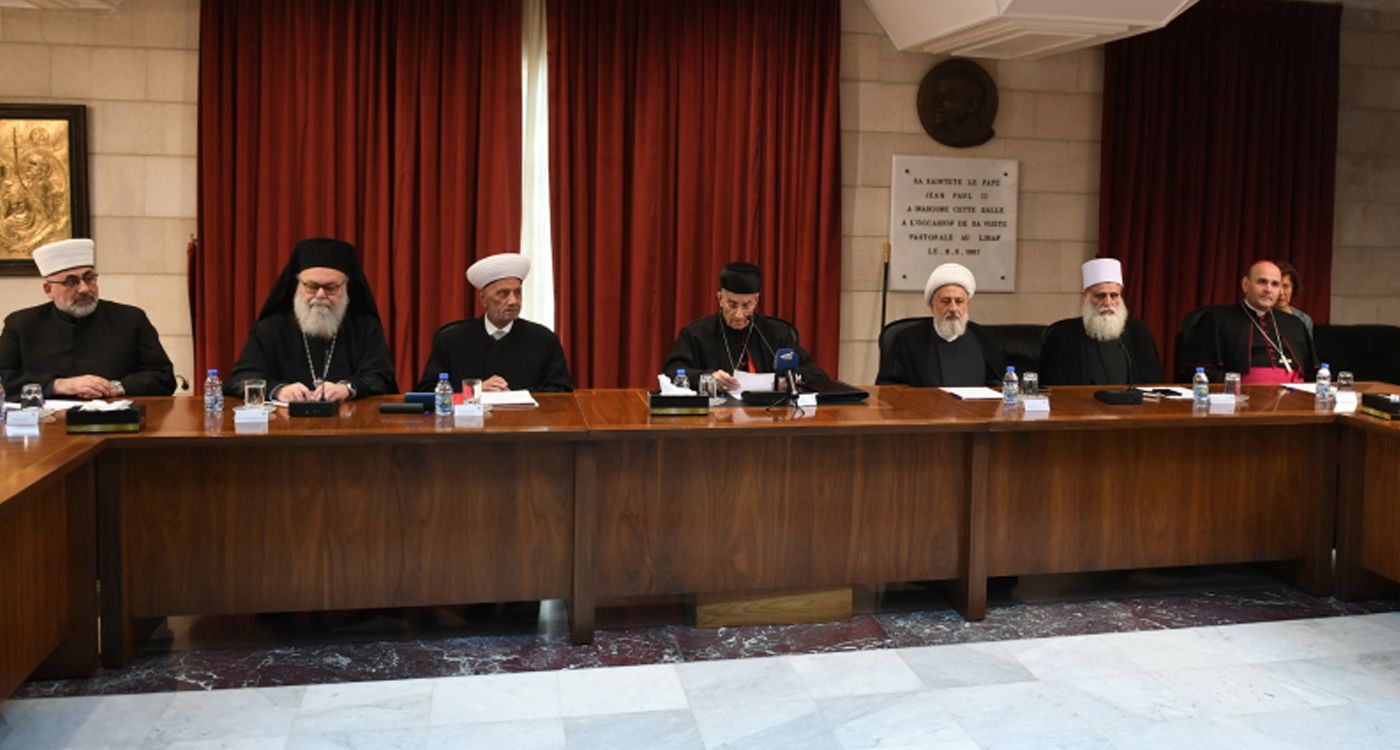
Lebanese religious communities unanimously appealed to the UN Security Council yesterday, urging it to address the crisis in Lebanon and to rescue the country from Israel’s grip by imposing an immediate ceasefire. This call followed a broad interfaith assembly held in Bkerke, convened at the invitation of the Maronite Patriarch and attended by the Apostolic Nuncio, the Holy See’s representative.
The session was held in the main conference hall of the Maronite Patriarchate, where around thirty religious leaders took the floor in succession. The speakers included Maronite Patriarch Bechara Rai, Grand Mufti of the Republic Abdel Latif Derian, Vice President of the Higher Shia Council Ali al-Khatib, Druze Sheikh Akl Sami Abil-Mouna, Greek Orthodox Patriarch John X Yazigi, and Alawite community leader Ali Kaddour.
These parallel speeches converged on several fundamental points: the urgent need for an immediate ceasefire and a presidential election, the centrality of the State, and adherence to the Taif Agreement.
The only dissenting voice came from Sheikh Ali al-Khatib, who, under the watchful gaze of Jaafarite Mufti Ahmad Kabalan, delivered a statement praising the ‘resistance’ which, he claimed, has filled the void left by the State when it “fell short in its responsibilities.” However, Sheikh Ali al-Khatib also advocated for “a State of citizenship, free from all forms of communal clientelism” and ultimately called for the election of a “consensual” president.
In his opening remarks, Druze Sheikh Akl quoted Pope John Paul II, exclaiming, “What has become of Lebanon, the message?” This referenced the Pope’s famous characterization of Lebanon as “a model of pluralism for both the East and the West.” Regrettably, this essential concept of pluralism, which was included in the draft of the final statement, was ultimately omitted from the final version.
Final Statement
The summit concluded with a statement urging the UN Security Council to convene “without delay to put an end to the massacres and humanitarian disasters perpetrated in Lebanon by Israel.”
The statement also called on the Lebanese people “not to engage in sterile debates.” “This is not the time to demand or pursue political gains,” it stated, but rather “a time for solidarity and unity.” The text emphasized that “the unity of the Lebanese people remains the most powerful weapon to defend Lebanon.”
The Islamic-Christian assembly then demanded the “immediate election” of a new president of the Republic “by the constitutional provisions and with the greatest understanding and consensus possible.”
Within the political class opposed to Hezbollah, there is a prevailing belief that the term “consensual president” implies a “weak president” subject to preconditions that would not insist on the implementation of Security Council Resolution 1559, which calls for the disarmament of all militias, including the pro-Iranian group.
The fourth point, while omitting Resolution 1559, calls for the implementation of UN Resolution 1701, which mandates the deployment of the Lebanese Army in the south of the Litani River following its reinforcement. It emphasizes the necessity of full cooperation between the Executive and Legislative branches in this endeavor.
In expressing gratitude to the communities that have welcomed displaced persons, the statement “highlights the importance of respecting individual property rights and firmly rejects any encroachment on private property.”
Additionally, the interreligious assembly thanked “Arab and foreign countries for their political support and their material, medical, and food assistance” while urging their help in reconstructing what continues to be systematically destroyed by the Israeli Army.
The statement concluded with a call for peace, reaffirming that the Palestinian cause is “the central cause for all Arab nations.”



Comments